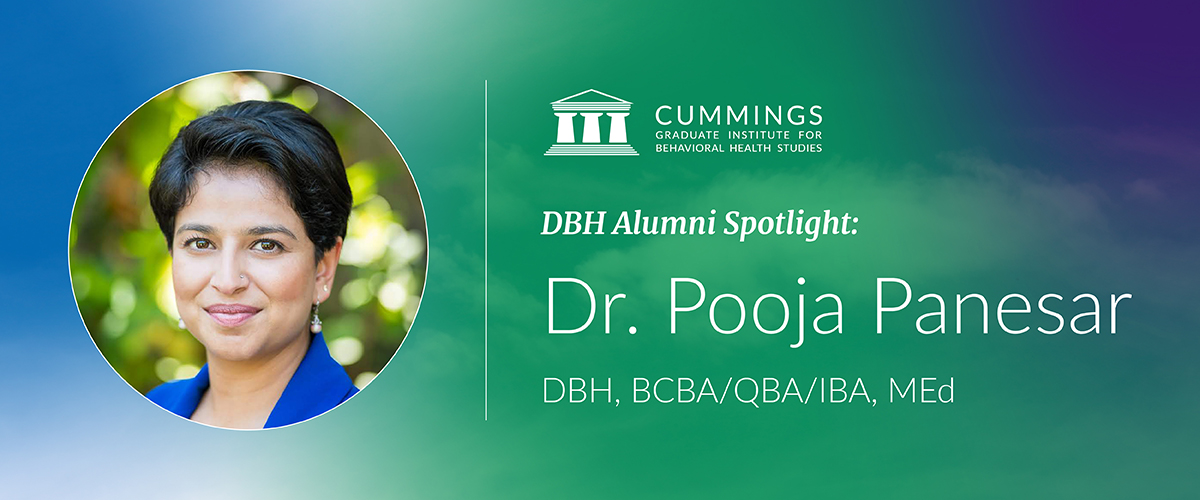 Empowerment Through Integration: How Dr. Pooja Panesar is Elevating Autism Services in East Africa
Empowerment Through Integration: How Dr. Pooja Panesar is Elevating Autism Services in East Africa
Dr. Pooja Panesar has spent more than two decades advancing autism services across East Africa, pioneering awareness, inclusion, and access to evidence-based interventions in regions where such resources are limited or nonexistent. As the founder of interdisciplinary centers in Kenya and Tanzania, she partners with schools, families, and professionals to deliver individualized services, caregiver training, and capacity-building initiatives. Dr. Panesar is also accredited by the QABA Board to provide certification coursework for those entering the field, expanding the pipeline of qualified practitioners. Motivated by the unmet needs she witnessed in her communities, Dr. Panesar pursued the Doctor of Behavioral Health (DBH) degree to close the gap between healthcare and therapeutic services for autistic individuals and their families. Today, she integrates holistic care models and collaborative practice to strengthen systems, empower caregivers, and expand behavioral health access throughout the region. In this interview, Dr. Panesar shares how the DBH program equipped her to bridge systemic gaps, the impact of integrated care on families and providers, and her vision for advancing behavioral health across East Africa.
How has earning your DBH shaped your approach to behavioral health?
There is a chasm in service provision of therapies and health/medical intervention in the field of autism in East Africa… and perhaps in most places in the world. As research shows, there are multiple comorbidities that come along with autism, and providing holistic care makes the difference in each individual reaching their potential.
My DBH program gave me the tools I needed to bridge the gap between health, education and therapies for families affected by autism, creating inclusive and collaborative programs that support their holistic growth.
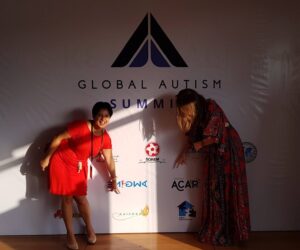 What are your primary interests in behavioral health, and how do they support your career goals?
What are your primary interests in behavioral health, and how do they support your career goals?
Having been in the field of autism for over 20 years, that has grown to become my passion. I work with individuals of all ages and enjoy learning from them as much as I support them. Behaviour health affects every facet of our lives, and the learning never ends either. I continue educating myself based on each client I come across, and include all these lessons into my intervention programs for each family.
Can you share a key moment in your DBH journey that shaped your view of integrated care?
Aside from autism, I learned about multiple health concerns related to various chronic and comorbid conditions. My father had passed away after living with diabetes for decades just as I began the program. I was enlightened on the aspect of integrated healthcare and the significance of involving various professionals in a collaborative setting to ensure the best outcome for each patient.
I take this lesson to my work where I actively look to collaborate with other health and education professionals that each client may need during their journey.
What impact do you hope to make with your DBH in your field and community?
One big aspect is dissemination of information. Knowledge is power, and the unknown is always scary. I am one of the lucky few to have gained this information in behavioral health and integrated healthcare in my region, and hope to share as much information with families I work with others to ensure everyone I encounter in my life feels empowered to seek services needed. Everyone has a right to that.
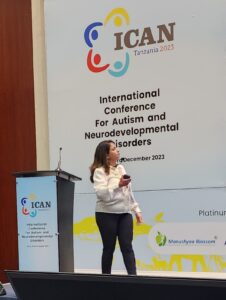 What motivates you to keep pushing forward in integrated behavioral healthcare?
What motivates you to keep pushing forward in integrated behavioral healthcare?
Each family I work with is an inspiration in advancing my knowledge and the work I do. No two families I work with are the same, and each brings their unique perspective and needs to light. As new questions are asked, I often go back to the drawing board to ensure I can provide information relevant and meaningful to support growth and positive outcomes. This includes research, collaborating with colleagues, and reaching out to professionals that contribute to my growth and the family’s support system. There is rarely monotony in my work which keeps me on my toes and highly motivated.
What advice would you give to someone considering the DBH program?
Definitely worth the pains of a PhD program compared to others! My favorite part of this program was being able to customize it to learn exactly what I needed to and fill the gaps I felt would make me a better professional. The professors and administration were all extremely supportive through the journey making it enjoyable and doable. It takes a lot of courage to sign up for a PhD program and make that commitment – why not do it where you can achieve what you set out to learn while becoming part of a supportive community.
Dr. Pooja Panesar’s work exemplifies how passion, expertise, and purpose can drive meaningful change across communities. By integrating the knowledge and leadership skills gained through the DBH program, she has expanded not only her own scope of practice but the possibilities for autism care across East Africa. Dr. Panesar’s impact now extends beyond clinical intervention into healthcare collaboration, workforce development, public education, and policy influence, shaping outcomes for families, practitioners, and entire systems. As Dr. Panesar continues to bridge gaps between medical, educational, and therapeutic services, her DBH training remains a powerful catalyst for sustainable, culturally responsive behavioral health innovation across the region.
Connect with Dr. Pooja Panesar
- Facebook: Dr. Pooja Panesar
- LinkedIn: Dr. Pooja Panesar
- Instagram: Dr. Pooja Panesar
- Website: www.kaizora.com
Check Out Dr. Pooja Panesar on the Disruptors at Work Podcast
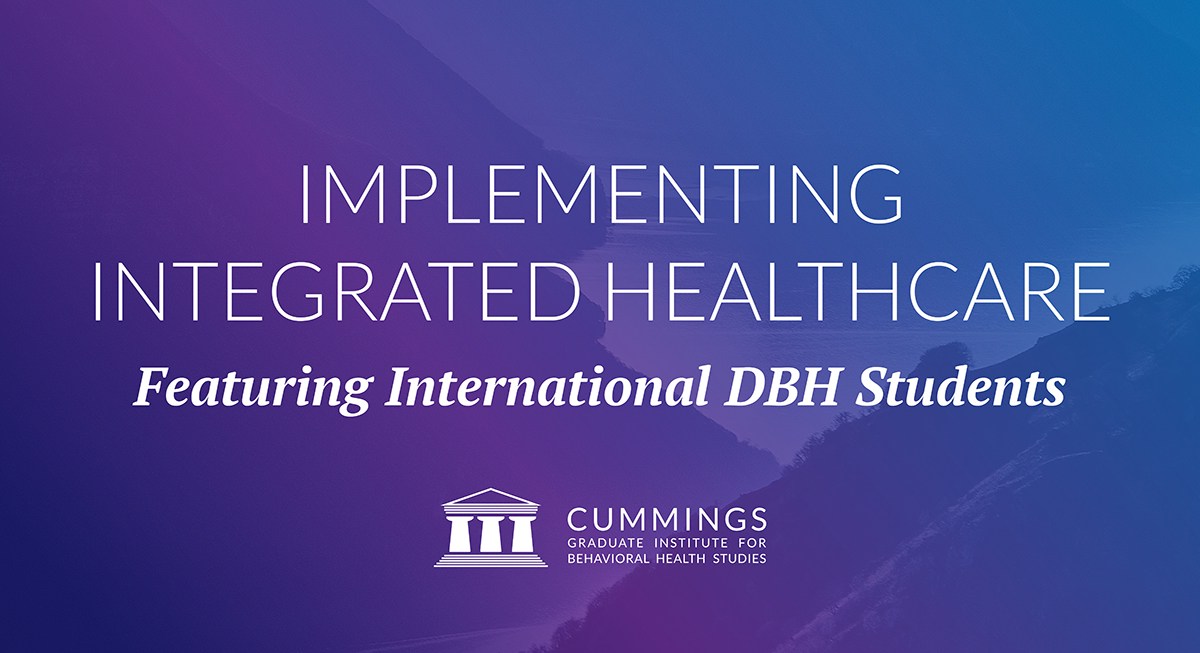
In this episode of Disruptors at Work: an Integrated Care Podcast host Dr. U. Grant Baldwin, Jr., DBH, Director of the Doctor of Behavioral Health (DBH) program at Cummings Graduate Institute for Behavioral Health Studies (CGI) is joined by five international Doctor of Behavioral Health (DBH) students, Amanda Bueno, BCBA, QBA, Shadiase Jack, LCSW-C, Pooja Panesar, BSc, MEd, BCBA, QBA, Valeria Parejo, BCBA, QBA, Dr. Sylvester Olubolu Orimaye, PhD, MPH, all of whom are accomplished healthcare providers. In this episode, the panelists share their experience in the DBH program, including how they have incorporated strategies learned through CGI’s academic curriculum at their jobs and the ways they are working toward transforming integrated healthcare delivery and patient care.
Dr. Pooja Panesar Contributes to Upcoming Book: Integrated Behavioral Health: Applying the Biodyne Mindset in Healthcare
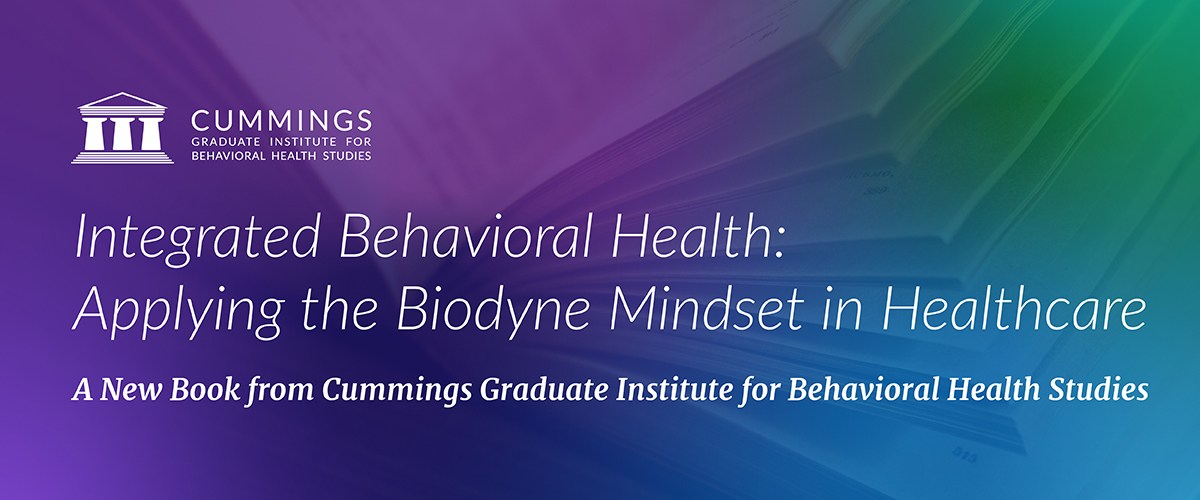
Cummings Graduate Institute for Behavioral Health Studies (CGI) is proud to announce the upcoming release of the groundbreaking new book, Integrated Behavioral Health: Applying the Biodyne Mindset in Healthcare, set for publication in January 2026. This new book builds on the foundation laid by Dr. Nicholas A. Cummings and Dr. Janet Cummings, renowned psychologists and co-founders of both the Doctor of Behavioral Health (DBH) degree program and CGI, who previously introduced the influential Biodyne Model in their seminal work Refocused Psychotherapy as the First Line Intervention in Behavioral Health.






























